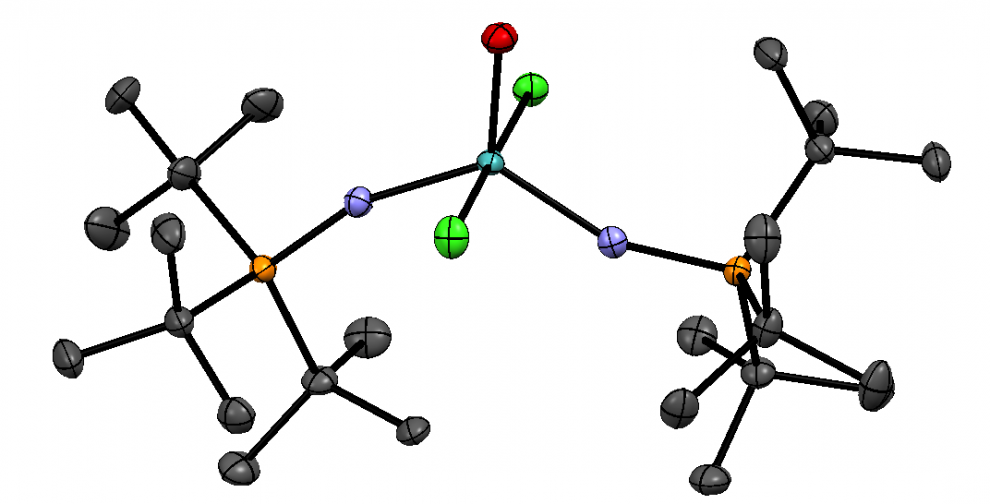Recently, Professor Danielle Posthuma from the Free University of Amsterdam and Professor Eus JW Van Someren from the Netherlands Institute of Neuroscience convened an international research team. This team has identified the cell types, regions, and biological processes that mediate the genetic risk of insomnia for the first time. Genetic risk is the contribution genes play in the chance of developing certain diseases. These findings, published in Nature Genetics, are a significant step in mastering the mechanisms that cause insomnia.
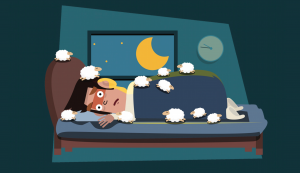
Image from Marygrace Taylor
Insomnia is a very common disorder in today’s society. Currently, one out of every 10 persons has a poor quality of long-term sleep and suffers from the serious consequences of insomnia during the day. Nearly 800 million people worldwide suffer from chronic insomnia.
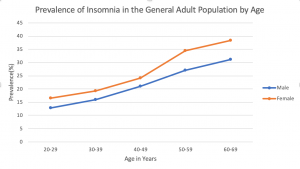
Prevalence of Insomnia in the General Adult Population by Age. Data taken from DOI: 10.3988/jcn.2009.5.1.20
Although treatments relieve some symptoms, most people with insomnia still complain that they cannot sleep well. It has been found that susceptibility to insomnia often runs in families, and it seems that the problem is related to the brain. Before this study, researchers had only discovered several genes associated with insomnia susceptibility, and it was not clear which areas of the brain do these genes work in. To solve those problems, such a large study was conducted.
The findings were achieved by evaluating the DNA and sleep characteristics of more than 1.33 million people. The researchers identified a total of 956 genes that contribute to the risk of insomnia. They found that some of these genes have a major impact on the function of axons. Axons are a protrusion from a neuron that allows brain cells to communicate with each other. Another part of these genes is active in specific cell types in the frontal cortex and subcortical nucleus of the brain.
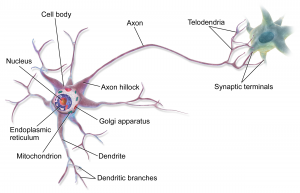
Neuron Structure. Retrieved from Wikipedia Common.
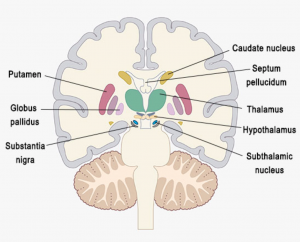
Brain Domain. Image Created by Dorling Kindersley
The researchers compared risk genes for insomnia with risk genes for other diseases. Surprisingly, Insomnia is genetically more related to psychiatric traits ( depression, anxiety, etc.) and metabolic traits (obesity, diabetes, etc.) than to other sleep traits. Here is a YouTube video about insomnia, depression, and anxiety.
Danielle Posthuma, a research author and professor of statistical genetics, said: “Our study shows that insomnia, like so many other neuropsychiatric disorders, is influenced by 100’s of genes, each of small effect. These genes by themselves are not that interesting to look at. What counts is their combined effect on the risk of insomnia. We investigated that with a new method, which enabled us to identify specific types of brain cells.” Guin Smit, a neurobiologist at the Free University of Amsterdam, said: ” These findings are a breakthrough since we can now for the first time start searching for underlying mechanisms in individual brain cells in the laboratory.”
Wenxin Zhao
